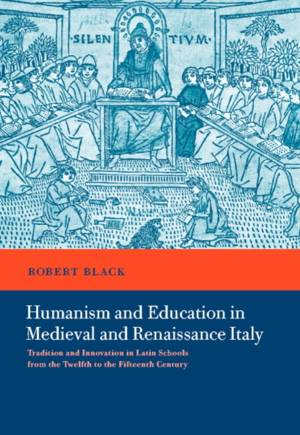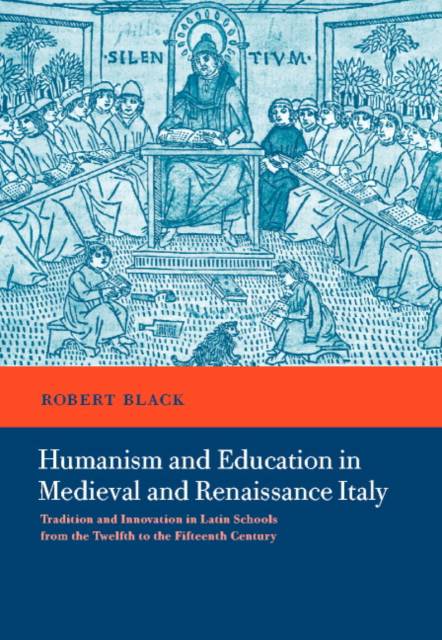
- Afhalen na 1 uur in een winkel met voorraad
- Gratis thuislevering in België vanaf € 30
- Ruim aanbod met 7 miljoen producten
- Afhalen na 1 uur in een winkel met voorraad
- Gratis thuislevering in België vanaf € 30
- Ruim aanbod met 7 miljoen producten
Zoeken
Humanism and Education in Medieval and Renaissance Italy
Tradition and Innovation in Latin Schools from the Twelfth to the Fifteenth Century
Robert Black
Hardcover | Engels
€ 236,45
+ 472 punten
Uitvoering
Omschrijving
The claim, central to many interpretations of the Renaissance, that humanists introduced a revolution in the classroom is refuted in Robert Black's masterly survey, based on over 500 manuscript school books. He shows that the study of classical texts in schools reached a high point in the twelfth century, followed by a collapse in the thirteenth as universities rose in influence. It was not until the later 1400s that humanism had a significant impact in the schoolroom, as Italian teaching, particularly at elementary levels, remained strongly traditional throughout the fifteenth century.
Specificaties
Betrokkenen
- Auteur(s):
- Uitgeverij:
Inhoud
- Aantal bladzijden:
- 506
- Taal:
- Engels
Eigenschappen
- Productcode (EAN):
- 9780521401920
- Verschijningsdatum:
- 20/09/2001
- Uitvoering:
- Hardcover
- Formaat:
- Genaaid
- Afmetingen:
- 157 mm x 231 mm
- Gewicht:
- 907 g

Alleen bij Standaard Boekhandel
+ 472 punten op je klantenkaart van Standaard Boekhandel
Beoordelingen
We publiceren alleen reviews die voldoen aan de voorwaarden voor reviews. Bekijk onze voorwaarden voor reviews.







